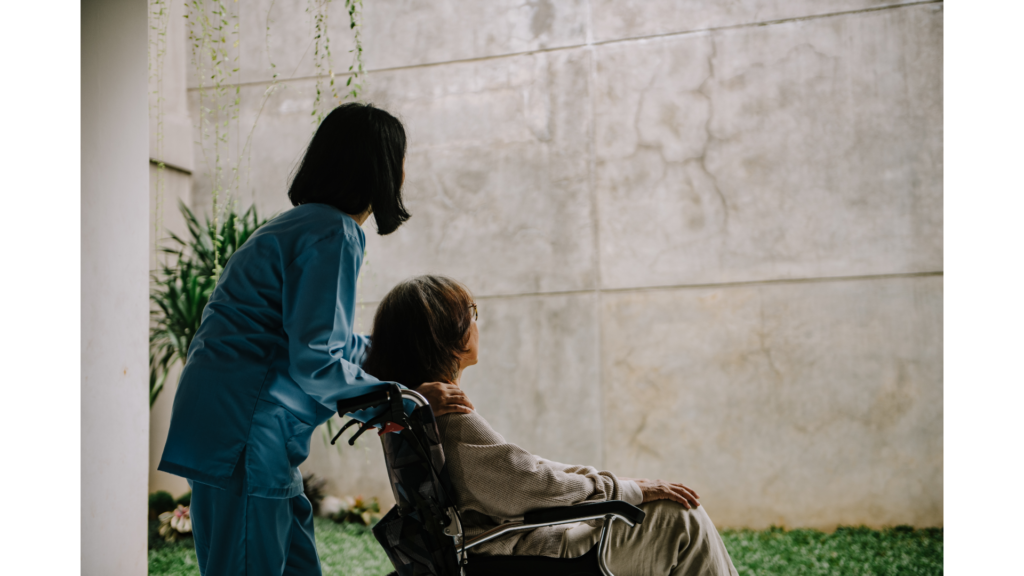
Introduction
When a loved one is diagnosed with a serious illness that cannot be cured, it can be a very difficult time for both the patient and their family. Palliative care is a specialized type of medical care that focuses on providing comfort and support to patients who are nearing the end of their lives. In this article, we will explore what palliative care is, the benefits of palliative care, and the options available for palliative care in Vaughan.
What is Palliative Care?
Palliative care is a type of specialized medical care that focuses on providing relief from the symptoms and stress of a serious illness. The goal of palliative care is to improve the quality of life for both the patient and their family. Palliative care can be provided at any stage of an illness, not just at the end of life. It is often provided alongside curative treatments to help manage the side effects of those treatments.
Benefits of Palliative Care
There are many benefits to palliative care, including:
Pain Management
One of the primary goals of palliative care is to manage pain and other symptoms that can cause discomfort and distress for the patient. This can include physical pain, as well as other symptoms such as nausea, shortness of breath, and fatigue.
Emotional Support
Palliative care also provides emotional support to both the patient and their family. This can include counseling, support groups, and other resources to help patients and their loved ones cope with the emotional and psychological impact of a serious illness.
Improved Quality of Life
By managing symptoms and providing emotional support, palliative care can significantly improve a patient’s quality of life. This can help patients to remain as independent as possible and maintain their dignity.
Caregiver Support
Palliative care also provides support to caregivers, who often experience a great deal of stress and emotional strain when caring for a loved one with a serious illness.
Palliative Care Options in Vaughan
There are several options available for palliative care in Vaughan, including:
Home-Based Palliative Care
Many patients prefer to receive palliative care in their own homes. Home-based palliative care services can provide a range of services, including pain management, symptom relief, and emotional support. Home-based care can also help patients to remain in familiar surroundings and maintain their independence for as long as possible.
Hospice Care
Hospice care is a type of palliative care that is provided in a hospice facility. Hospice care is often recommended when a patient’s illness has progressed to a point where curative treatments are no longer effective. Hospice care provides 24-hour care and support to patients, as well as emotional support to their families.
Hospital-Based Palliative Care
Many hospitals in Vaughan have specialized palliative care units that provide expert care and support to patients with serious illnesses. Hospital-based palliative care can provide pain management, symptom relief, emotional support, and end-of-life care.
Conclusion
Palliative care is an essential component of end-of-life care, providing comfort, support, and dignity to patients and their families. In Vaughan, there are several options available for palliative care, including home-based care, hospice care, and hospital-based care. By working with a palliative care team, patients can receive expert medical care, emotional support, and symptom relief, allowing them to maintain their quality of life and dignity throughout the end-of-life journey.
FAQs
1. Is palliative care only for patients with terminal illnesses?
No, palliative care can be provided at any stage of a serious illness, not just at the end of life.
2. Does palliative care mean giving up on curative treatments?
No, palliative care can be provided alongside curative treatments to manage symptoms and improve the patient’s quality of life.
3. What services are typically provided by a palliative care team?
A palliative care team can provide a range of services, including pain management, symptom relief, emotional support, spiritual support, and assistance with end-of-life planning.
4. How is hospice care different from palliative care?
Hospice care is a type of palliative care that is provided in a hospice facility. Hospice care is typically recommended when a patient’s illness has progressed to a point where curative treatments are no longer effective and the focus is on providing comfort and support.
5. Does palliative care only focus on physical symptoms?
No, palliative care also focuses on emotional, social, and spiritual aspects of a patient’s care. The goal is to provide holistic care that addresses all aspects of a patient’s well-being.
Supporting You in Ways That Matter

When a loved one is facing a life-limiting illness, the focus often shifts from curative treatment to improve their quality of life. Palliative care is a specialized type of healthcare that aims to provide comfort and support to your loved one and your family during this difficult time.
At our company, we understand the unique needs of each patient and their family. Our team works together to provide holistic care that addresses not only the physical symptoms but also the emotional and spiritual needs of the patient and their loved ones.
We believe that palliative care is about living life to the fullest, even in the face of a serious illness. We work with your loved one to develop a care plan that is tailored to their individual needs and preferences. Our goal is to help patients live as comfortably and independently as possible, for as long as possible.
At our company, we believe that every patient deserves compassionate, personalized care that honors their dignity and respects their wishes. We are committed to providing a peaceful and supportive environment where patients and their families can find comfort, hope, and healing.
